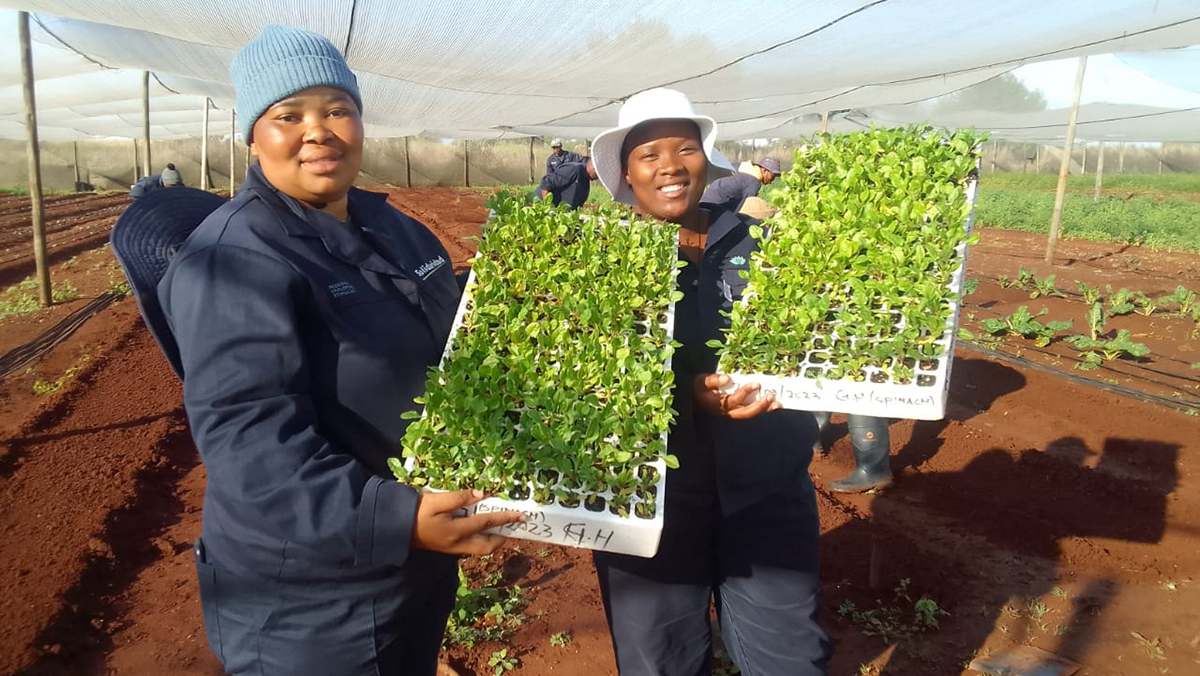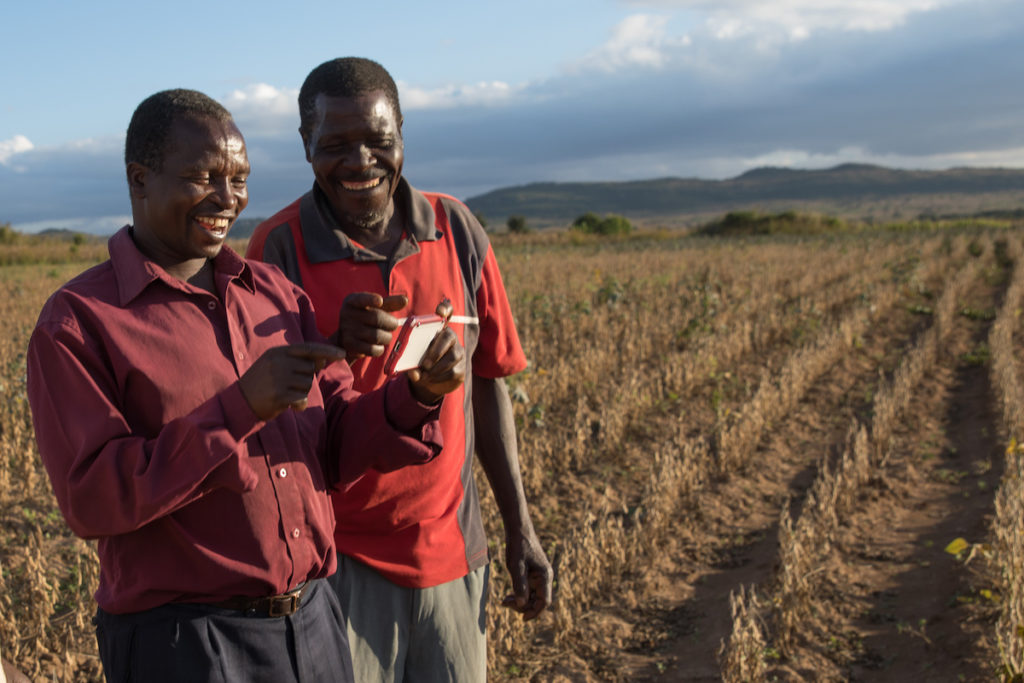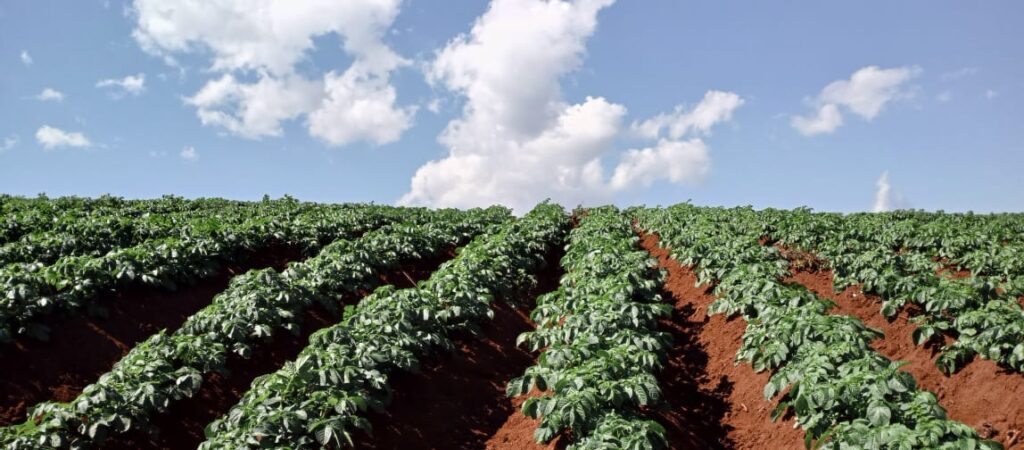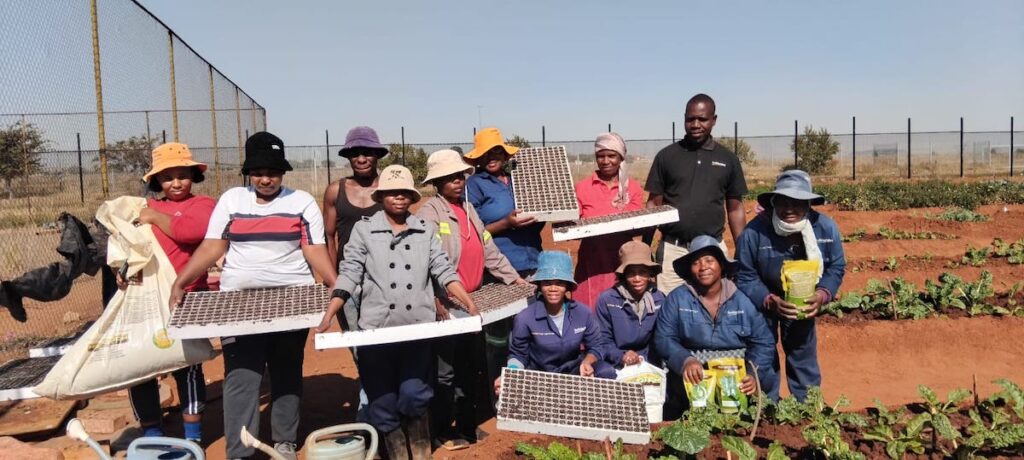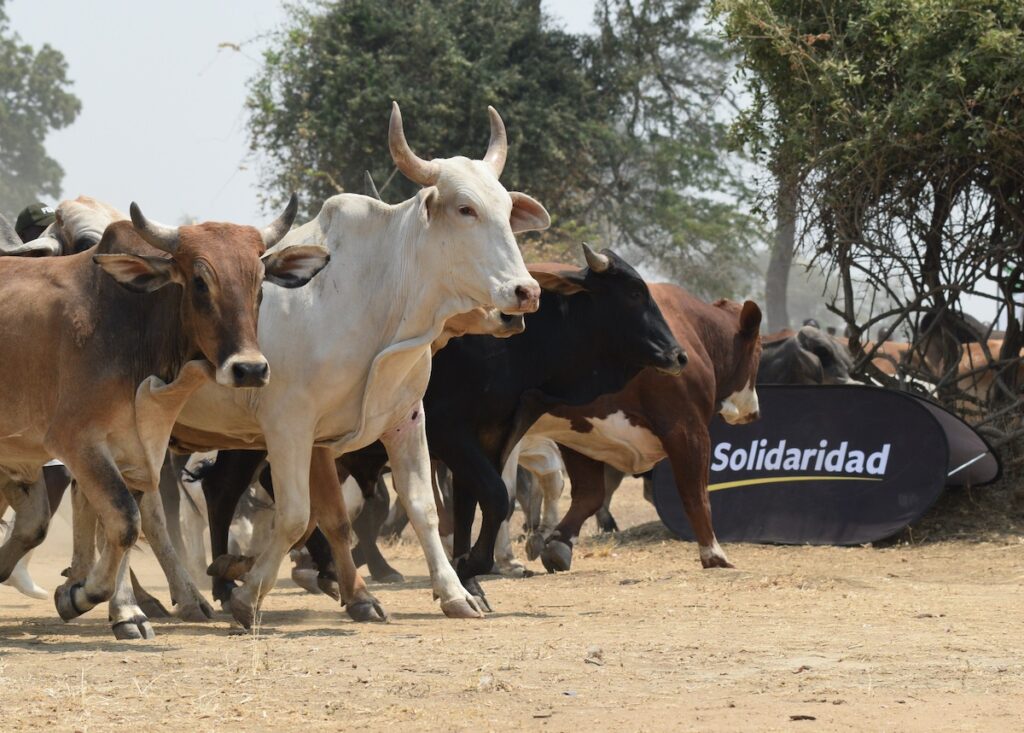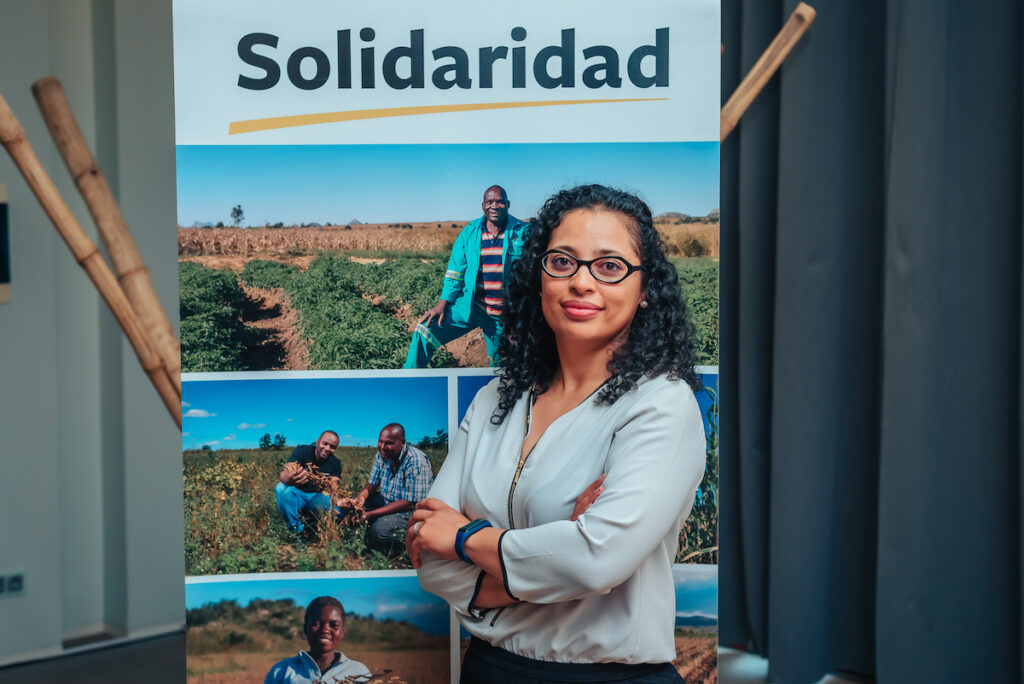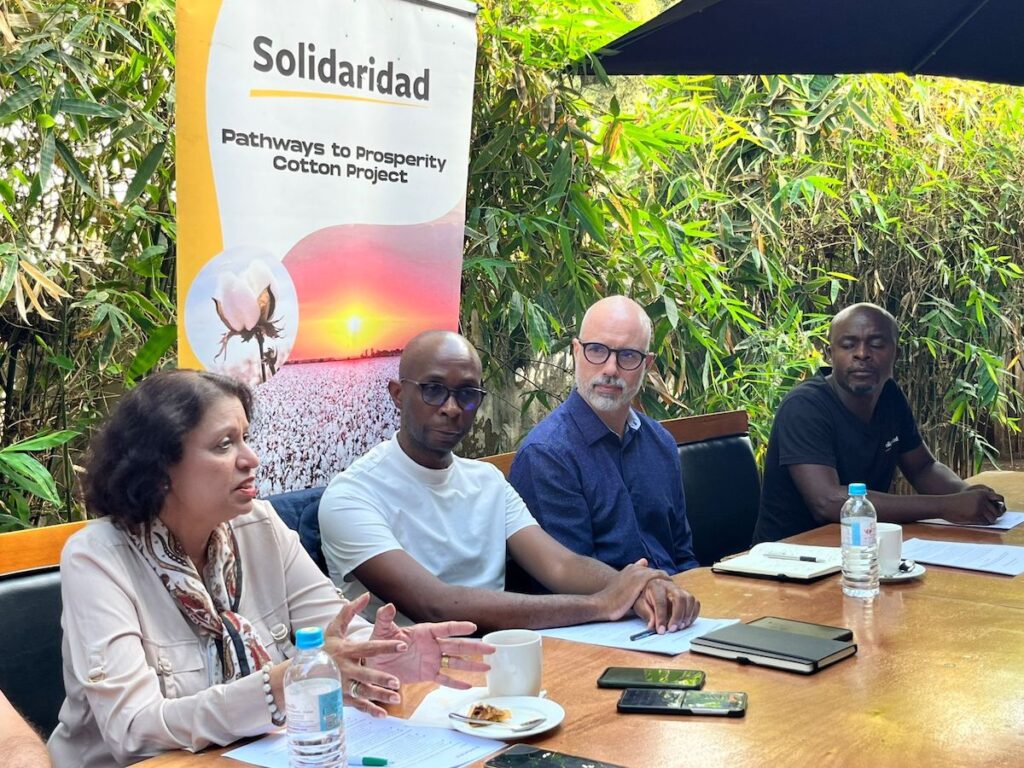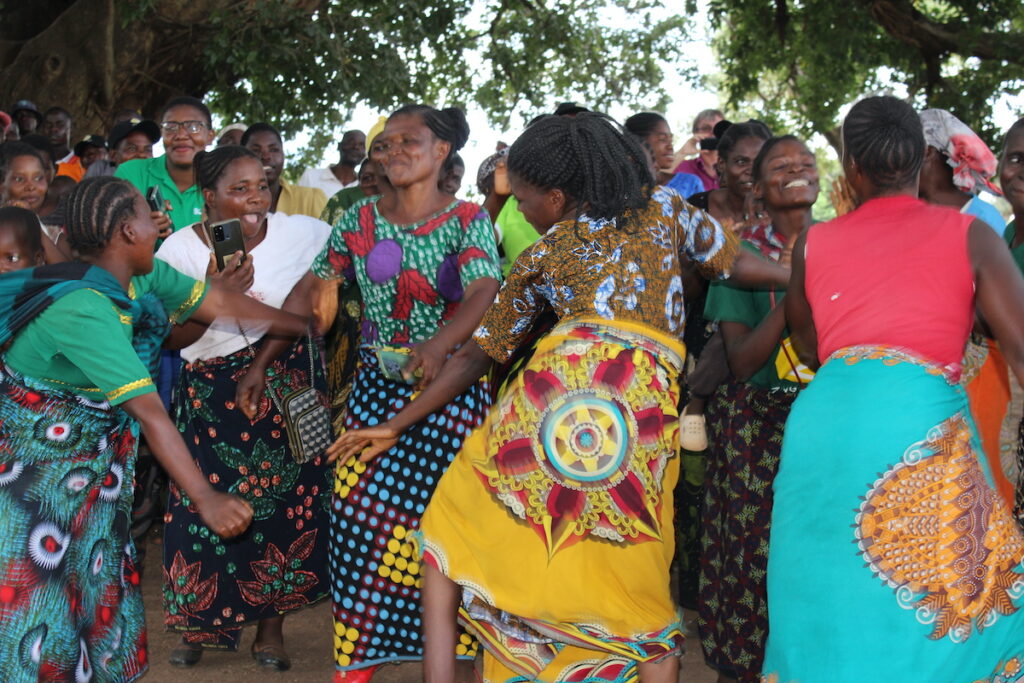The Social Employment Fund Project focuses on generating more than 1,110 jobs in the horticulture value chain and providing essential services to 1,623 farmers.
South Africa’s unemployment rate reached 34.4% in 2021, disproportionately affecting marginalized groups such as women and youth. Building on our work in South Africa under the Farmer2Market project, Solidaridad partnered with the Industrial Development Corporation of South Africa and the Department of Trade, Industry and Competition to implement the Social Employment Fund Project in three provinces: Gauteng, Eastern Cape, and the North West.
Social Employment Fund: Sustainable employment in agriculture
The project aimed to place 1072 job-seeking participants on farms to create more employment opportunities in the agricultural sector and enhance horticultural businesses. The Social Employment Fund Project aligns with three separate but interlinked Solidaridad thematic areas – food and nutrition, greening and the environment, and support for digital inclusion – to ensure holistic development in the region.
The participants received training in various skills, including Good Agricultural Practices, Pest and Disease Management, Value addition, Soil fertility, Harvesting, post-harvest handling and the ODK survey tool used to collect real-time data on impacts made at each project site. In addition, the project set up two soil labs at centralized locations in Gauteng and the Eastern Cape to provide affordable soil testing services to local farmers. This initiative helps increase employment opportunities, expand agricultural businesses and improve smallholders’ soil fertility and productivity.
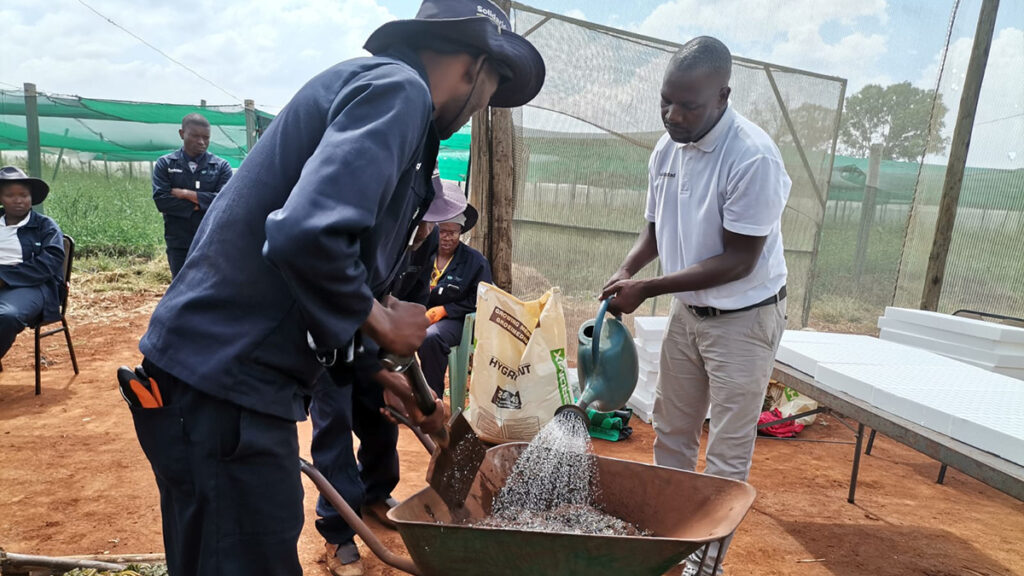
Positive results from the Social Employment Fund
Social Employment Fund has yielded positive results. Small-scale and emerging farmers are extremely happy to expand their crop production and grow their labor force. This project has helped them contribute to job creation and food security in their communities. The project now has 1219 active participants across three target provinces, exceeding our initial target of 1072 participants.
The participants’ biggest delight is the privilege of working through the full crop cycle, seeing the produce grow into a harvest that is sold on shelves in some PicknPay (national food retailer) outlets. They are also excited about receiving a monthly income and the opportunity to acquire additional skills in areas such as sales, landscaping, seedling production, crop management, interpersonal skills, and teamwork. Many participants have also indicated that employment through the Social Employment Fund Project has helped them get out of their comfort zones, as well as increase their self-esteem and dignity.
After demonstrating a high level of commitment, participants from Northern Farm in Diepsloot (Johannesburg, South Africa) were awarded a plot of land by the City of Johannesburg to help them learn how to produce their own food. They also received seedlings from Social Development and grew tomatoes, green peppers, and beetroot to sell in the market, resulting in a profit of R500. The land allows the participants to become self-sufficient and earn a living beyond the project.
The project’s success is exemplified by the experiences of two Northern Farm time-keepers, Oaiste Mooki and Puseletso Kekana. In spite of their lack of experience with agriculture and food production, they have gained new skills and motivation to become farmers. “We learned so much about agriculture, and the money from the project helps us financially at home,” saidPuseletso. “I did not know how to even grow spinach before. Now I know that spinach doesn’t need a lot of water, which is why it does not grow well during the rainy season,” added Oaitse.
Strengthening partner relationships
The project has received positive feedback from the funders, ranking Solidaridad among the top three implementers out of 50. The project’s success shows that the model is viable for reducing unemployment, boosting household income, transferring skills, and boosting people’s dignity and self-esteem. As the project draws to a close, we hope that the South African government considers growing the capability of the Social Employment Fund Project by increasing its share of the total budget to allow for an extension of the project.
We believe that youth entrepreneurship programs should reflect the specific needs of young people and technological advances, including the innovative approaches that motivate youth participation, including communication technology advances. We are committed to putting youth employment and entrepreneurship at the centre of agri-sector development and working towards a more sustainable and equitable agricultural sector in South Africa.

